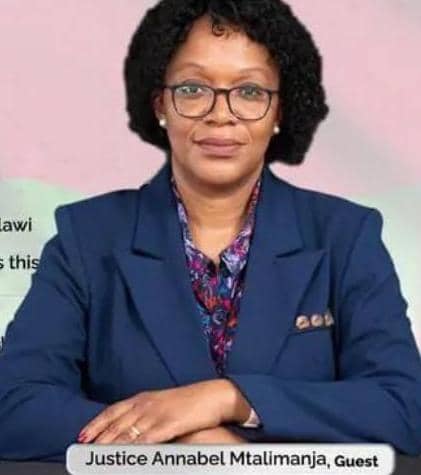By Twink Jones Gadama
The Malawi Electoral Commission (MEC) has been at the center of controversy in recent times, with many calling for the resignation of its chairperson, Dr. Anabel Mtalimanja.
The opposition and other concerned citizens and stakeholders have been vocal about their demands, citing various reasons for their request.
However, Mtalimanja remains defiant, refusing to step down.
The MEC plays a crucial role in ensuring free, fair, and credible elections in Malawi.
As the body responsible for overseeing the electoral process, its independence and impartiality are essential.
However, allegations of violations of electoral laws and irregularities have raised concerns about the commission’s ability to conduct fair elections.
Mtalimanja has been under fire with some accusing her of bias and incompetence.
The Democratic Progressive Party (DPP) and other opposition parties have been particularly vocal in their criticism, calling for electoral justice and fair elections.
Despite the mounting pressure, Mtalimanja has shown no signs of backing down.
In a recent speech, Mtalimanja emphasized the importance of the MEC’s role in ensuring the integrity of the electoral process.
While her commitment to the commission’s mission is commendable, many question whether she is the right person to lead the MEC.
Calls for Resignation
The opposition’s demands for Mtalimanja’s resignation are not unfounded.
Allegations of electoral irregularities and bias have marred the commission’s reputation.
Furthermore, concerns about the MEC’s independence and impartiality have been raised, with some accusing Mtalimanja of being too close to the ruling party.
Support for Mtalimanja
Despite the criticism, Mtalimanja still enjoys support from some quarters.
Her supporters argue that she is a competent and experienced leader who has dedicated her career to public service.
They also point out that the MEC’s challenges are not solely her responsibility, but rather a result of systemic issues and external pressures.
Conclusion
The controversy surrounding Mtalimanja’s refusal to resign as MEC chair raises important questions about the role of the electoral commission in ensuring democratic governance.
While Mtalimanja’s commitment to the commission’s mission is commendable, the allegations of bias and incompetence cannot be ignored.
Ultimately, the decision to resign or remain in office is Mtalimanja’s to make.
However, it is crucial that the MEC prioritizes transparency, accountability, and impartiality to maintain public trust.
As Malawi prepares for the 2025 general elections, the electoral commission’s credibility will be put to the test.
Will Mtalimanja’s defiance be seen as courageous or stubborn?
Only time will tell. One thing is certain, however: the MEC’s integrity and independence are essential to Malawi’s democratic future.




